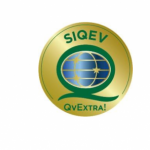EVOO Polyphenols Health: Benefits and Scientific Evidence are closely linked, making extra virgin olive oil (EVOO) one of the most studied foods for its positive effects on heart function. These benefits are not only due to its high oleic acid content but also to its polyphenols—bioactive compounds found in the oil’s unsaponifiable fraction, which, although it makes up only 2% of the total, has a significant impact on overall health.
What Is EVOO Polyphenols Health and Why Does It Matter?
Within this minor fraction are substances such as tocopherols, triterpenoids, and especially polyphenols, known for their powerful antioxidant properties. Even in small quantities, they are essential for the oil’s oxidative stability, sensory qualities, and, most importantly, their impact on cardiovascular health.
The polyphenols present in extra virgin olive oil make up a diverse chemical group that includes simple phenols, flavonoids, phenolic acids, lignans, and secoiridoids. Compounds like oleacein, oleocanthal, and oleuropein aglycone have been widely researched for their protective effects against cardiovascular diseases and metabolic disorders.
EVOO Polyphenols Health Effects on Cholesterol and Blood Pressure
These compounds have several beneficial effects on key cardiovascular risk factors:
-
Preventing LDL cholesterol oxidation
-
Improving endothelial function, essential for blood pressure regulation
-
Reducing chronic inflammation
-
Regulating lipid and glucose metabolism
Regular consumption of EVOO helps lower LDL, raise HDL, and improve blood sugar control, making it a valuable ally in preventing metabolic syndrome. This further highlights the importance of EVOO polyphenols and cardiovascular health.
Do All Olive Oils Contain These Beneficial Polyphenols?
The amount and quality of EVOO’s phenolic fraction depend on several factors:
-
Olive variety
-
Ripeness level
-
Agricultural practices
-
Extraction method
Only EVOOs produced through mechanical methods under optimal conditions retain these compounds in significant amounts. In contrast, refined olive oils lose almost all of their unsaponifiable fraction—and with it, their health-protective potential—even if labeled as “olive oil.”
How Much EVOO Polyphenol Intake Is Needed to See Benefits?
According to the EFSA, a daily intake of 20 g of EVOO containing at least 200 mg/kg of polyphenols contributes to cholesterol regulation. Additionally, consuming 5 mg of polyphenols per kilogram of body weight per day may provide protective effects. However, not all EVOOs on the market meet these levels.
How to Choose an EVOO Rich in Phenolic Compounds?
To ensure a high concentration of polyphenols, the SIQEV seal, backed by QvExtra! International, certifies that the oil contains at least 200 mg/kg of polyphenols. This certification helps consumers identify EVOOs with genuine nutritional value and proven health benefits.
References
Agostoni, C. V., Bresson, J. L., Fairweather Tait, S., Flynn, A., Golly, I., Korhonen, H., … &
Verhagen, H. (2011). Scientific Opinion on the substantiation of health claims related to
polyphenols in olive and protection of LDL particles from oxidative damage (ID 1333, 1638,
1639, 1696, 2865), maintenance of normal blood HDL-cholesterol concentrations (ID 1639),
maintenance of normal blood pressure (ID 3781), anti-inflammatory properties (ID 1882),
contributes to the upper respiratory tract health (ID 3468), can help to maintain a normal
function of gastrointestinal tract (3779), and contributes to body defences …. EFSA
journal, 9(4), 2033-1.
Fernández-Gutiérrez, A., Carrasco-Pancorbo, A., Serrano-García, I. & Olmo-García, L. (2022).
ACEITE DE OLIVA VIRGEN EXTRA Y ENFERMEDAD CARDIOVASCULAR. ACEITES DE OLIVA Y
SALUD. Beneficios de los Aceites de Oliva Vírgenes, 3, 56-67.
Gnoni, A., Longo, S., Damiano, F., Gnoni, G. V., & Giudetti, A. M. (2021). Oleic acid and olive oil
polyphenols downregulate fatty acid and cholesterol synthesis in brain and liver cells. Olives
and Olive Oil in Health and Disease Prevention, 651-657.
Serreli, G.; Boronat, A.; De la Torre, R.; Rodriguez-Moratò, J.; Deiana, M. (2024). Cardiovascular
and Metabolic Benefits of Extra Virgin Olive Oil Phenolic Compounds: Mechanistic Insights
from In Vivo Studies. Cells, 13, 1555.






